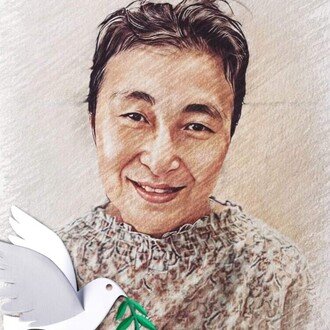
The Ultimate Universal Medicine: How Exercise Extends Your Healthy Lifespan
“Can exercise really help you live longer?” “What’s the best way to stay healthy as you age?”
Many people wonder if there’s a natural way to extend their healthy lifespan without relying on medications. The answer lies in exercise—an accessible, powerful, and scientifically proven method to prevent chronic diseases and improve overall well-being.
In this article, we’ll explore how regular physical activity boosts longevity, protects against age-related diseases, and enhances both physical and mental health. Plus, we’ll provide practical exercise tips tailored for older adults.
Introduction
In today’s fast-paced world, many people, especially older adults, find themselves living sedentary lifestyles. Long hours spent on smartphones, watching television, or simply sitting idly contribute to a decline in overall health. However, the best medicine for a healthier and longer life is not found in a pill bottle—it’s exercise. Studies have shown that incorporating physical activity into daily routines significantly enhances quality of life and reduces the risk of chronic diseases. This article explores why exercise is considered the ultimate universal medicine and how you can start benefiting from it today.
The Health Risks of a Sedentary Lifestyle
A lack of physical activity is one of the major contributors to chronic diseases such as cardiovascular disease, type 2 diabetes, chronic obstructive pulmonary disease (COPD), depression, dementia, and even cancer. Older adults often take multiple medications to manage these conditions, but what if there was a way to reduce medication dependence? Exercise serves as a powerful tool to prevent and manage these diseases naturally.
The Benefits of Exercise for Aging Adults
As we age, our bodies undergo numerous changes, including muscle loss, reduced flexibility, and an increased risk of falling. Exercise counteracts these effects by:
Enhancing muscle strength
Improving balance and coordination
Reducing total body fat
Boosting cognitive function
Preventing diseases such as heartburn, dementia, and mental decline
Furthermore, unlike medication or surgery, exercise has minimal side effects and is the safest preventive method available.
Recommended Exercise Guidelines for Older Adults
According to the Canadian Medical Association Journal, older adults should aim for at least 150 minutes of moderate to intense physical activity per week. This recommendation applies regardless of age, with adjustments made based on heart rate and physical condition.
Breakdown of Recommended Exercise:
Aerobic Exercise: Engaging in activities like walking, cycling, or swimming for 90 minutes per week over four to five months can reduce mortality rates by 16%.
Strength Training: Performing resistance exercises for 30 to 60 minutes per week leads to a 10-20% reduction in body fat and enhanced cognitive function.
Interval Training: Originally designed for younger individuals, this method, involving alternating periods of activity and rest (such as cycling), is now considered safe for older adults when adjusted to their fitness levels.
Balance and Slow Movements: Exercises such as tai chi or yoga improve flexibility and reduce the risk of falls, making them highly effective for seniors.
The Psychological Benefits of Exercise
Exercise is not only beneficial for physical health but also significantly improves mental well-being. Regular physical activity can:
Reduce depression and anxiety
Enhance mood through the release of endorphins
Increase social interaction, reducing feelings of loneliness
One interesting concept is exergaming, where exercise is combined with interactive gaming elements. Research shows that exergaming can boost mood, increase self-esteem, and enhance emotional stability.
The Role of Medical Professionals and Society
Despite the overwhelming evidence supporting exercise as a form of medicine, it is still underutilized in medical prescriptions. Healthcare providers should emphasize the importance of physical activity in managing and preventing diseases. Additionally, community-based sports events and programs should encourage older adults to stay active.
Simple Steps to Get Started
Starting an exercise routine doesn’t have to be complicated. Here are a few simple ways to incorporate movement into your daily life:
Begin with short walks outside and gradually increase duration
Set a goal to reduce sitting time by half (e.g., if you sit for two hours, reduce it to one hour)
Find a workout buddy to stay motivated
Engage in enjoyable activities such as dancing, gardening, or swimming
Conclusion
Exercise is a universal, accessible, and powerful form of medicine that benefits people of all ages. By making physical activity a priority, you can significantly extend your healthy lifespan, improve your mental well-being, and reduce dependency on medications. Start today—take a step outside, move your body, and enjoy the countless benefits of an active lifestyle. If you found this information useful, be sure to share it and encourage others to join in leading a healthier life!
いいなと思ったら応援しよう!

